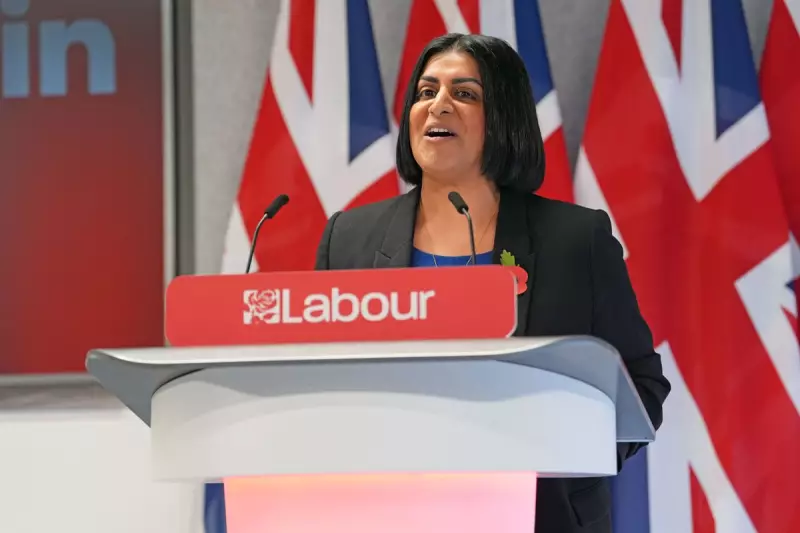
Home Secretary Shabana Mahmood is poised to announce what the government is billing as the most significant overhaul of the UK asylum system in modern times. The reforms, to be laid out in the House of Commons on Monday, are designed to restore order to the British border by making the country a less attractive destination for illegal migrants.
Denmark's Model: A Blueprint for Change
The sweeping changes are directly modelled on the strict asylum approach pioneered by Denmark. Senior Home Office officials were dispatched to Copenhagen earlier this year to study the policy, which has seen Denmark reduce asylum applications to a 40-year low and successfully remove 95% of rejected asylum seekers.
A central pillar of the UK reforms involves revoking the statutory legal duty to provide asylum-seeker support, a measure introduced in 2005 via EU law. This means housing and weekly allowances will no longer be guaranteed for those claiming asylum. The move is intended to lessen the incentive for migrants crossing the English Channel. Furthermore, support could be withdrawn from those who break the law or from individuals who have the right to work and can support themselves but choose not to.
Key Reforms and Political Reaction
Other major changes include making refugee status temporary and subject to regular review. Refugees will be removed as soon as their home countries are deemed safe, a shift from the current rules where those granted refugee status have it for five years before they can apply for indefinite leave to remain.
According to reports, judges will also be required to prioritise public safety over a migrant's right to a family life or the risk of facing 'inhuman' treatment upon return to their home country. The government has also pointed to its recent record, with Ms Mahmood insisting Labour has spearheaded record levels of immigration raids, leading to nearly 50,000 people with no right to be in the UK being returned.
However, these efforts come against a backdrop of rising Channel crossings. The latest Home Office figures show 39,075 people have arrived in the UK via small boats so far this year, already surpassing the totals for all of 2024 (36,816) and 2023 (29,437).
The opposition has been critical. Tory shadow home secretary Chris Philp acknowledged some measures were welcome but accused the government of stopping short of what is really required and resorting to gimmicks. He also questioned the effectiveness of the removal numbers, stating that only a tiny fraction involved small boat arrivals.
Charity Criticism and Human Rights Concerns
The plans have faced strong criticism from refugee charities. Enver Solomon, chief executive of the Refugee Council, described the proposals as harsh and unnecessary. He argued that they would not deter people fleeing persecution and were more likely to force vulnerable individuals into destitution and onto the streets.
He highlighted the existing challenges within the system, noting that people are not allowed to work while awaiting an asylum decision and are given very little time to find a home once granted status. Making the system more punitive, he contended, will not act as a deterrent but will instead cause significant hardship.
The government's approach, while inspired by Denmark's success, also navigates the ongoing debate around the European Convention on Human Rights. Denmark remains a signatory to the treaty, which some critics argue hampers deportation efforts, suggesting the UK government believes significant reform is possible within its framework.





